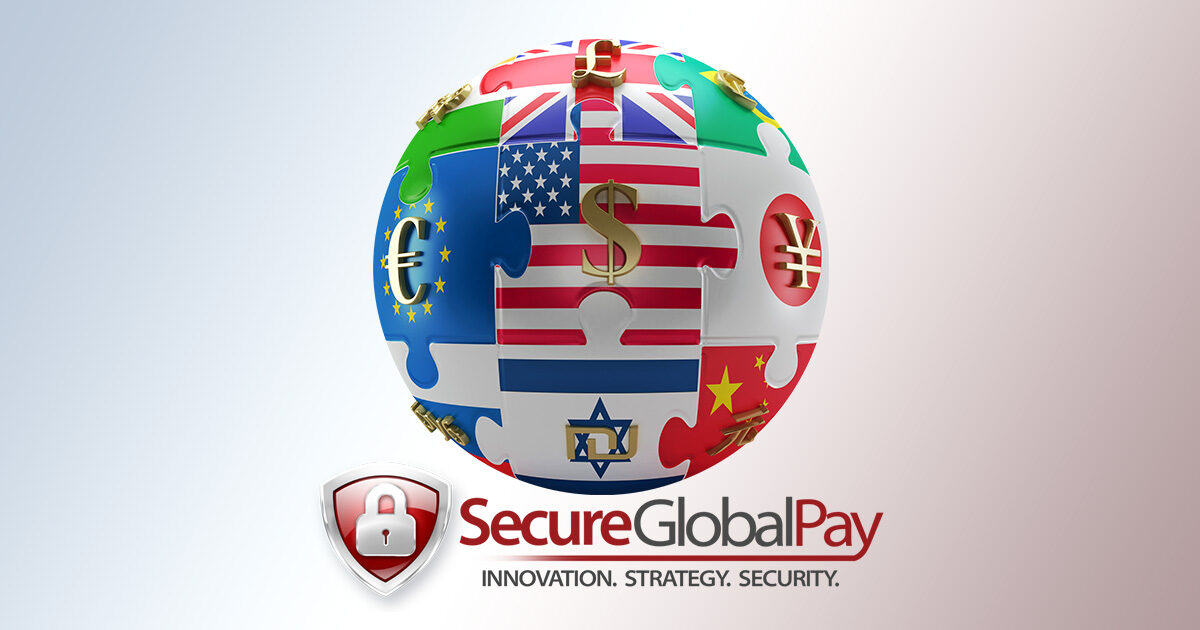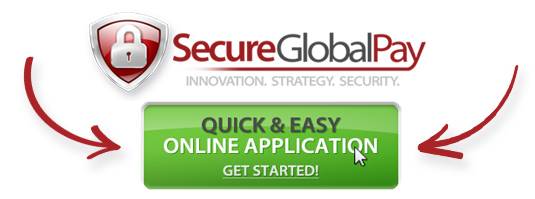
What is an Internet Merchant Bank Account?
An internet merchant bank account is a type of bank account just like any savings or checking account but with one very significant difference. It facilitates the online acceptance of credit cards, debit cards, ACH payments, eChecks & more. These cashless payments eventually get deposited in the bank account of your choosing via ACH, wire, or similar. This can take place the next day, or take anywhere from 2-3 business days. Learn the differences between bank account merchant gateway, direct MID & merchant aggregator before you apply. Making the right decision initially, will save you money and potential headaches down the road.
In order to accept payments by debit cards, credit cards, and mobile digital payments, you need a merchant account. Think of it as a license that permits your business to process the sales of transactions via major credit cards while having the funds from those payments deposited via ACH into the bank account of your choosing.
What Makes a Merchant Bank Account Different From a Regular Checking Account?
A merchant account is a special type of bank account that is established by a card payment processing company and sponsoring bank to facilitate the acceptance of credit cards. It legally empowers you to accept card payments. The funds accepted through the merchant service provider are deposited into the merchant’s bank account via ACH. The fees for service are also deducted automatically via ACH.
A merchant bank account and the acceptance of credit cards will always remain separate from a regular business bank account.
Payments from customers processed through a payment processor will initially be settled into your merchant account. Once they are settled, they are transferred to the bank account of your choice via ACH. They are never paid directly to your business bank account.
A merchant bank account is essentially an agreement between the three parties below to facilitate the acceptance of credit cards and debit cards:
- The business owner as the merchant
- A sponsoring bank that holds your merchant account
- A payment processor that handles your credit card transactions through a payment gateway, credit card terminal, or mobile application.

Is a Merchant Account the Same as a Business Account?
No, a merchant account is not the same as a business account. A merchant account is similar to a bank account, but it is designed to primarily allow businesses to process credit card and debit card payments. It works in combination with the bank account.
Business accounts are general-purpose bank accounts that can be used for a variety of purposes, such as receiving deposits, payroll processing, and overdrafts.
What is the Difference Between a Business Bank Account and a Merchant Account?
When doing a bank merchant account comparison, there are a few key differences between business bank accounts and merchant accounts.
First, merchant accounts are typically used by businesses to accept credit card payments, whereas business bank accounts can be used by any type of business and mostly focus on storing funds as well as financial services such as loans, salary payments, etc.
Merchant accounts usually have higher fees than business bank accounts, as they typically have more features and benefits than business bank accounts, such as the ability to process credit card payments quickly, fraud protection, virtual terminal setup, PoS systems, and other features.

Why Do You Need a Merchant Account?
It’s a must-have if you want to accept card payments. You simply cannot charge a sale to a customer’s card without one. You simply have no choice in the matter.
- A merchant bank account enables you to legally accept credit card payments.
- It provides safe and secure payment options for your customers
- It protects their confidential card and personal data
- It safeguards your business against fraudulent transactions and chargebacks
- Merchant account holders must abide by the rules laid down by Visa and MasterCard
Acceptance and approval of a direct MID involve the payment service provider assessing your business and carrying out a risk analysis for their card payment processing service.
Do I Need a Payment Gateway to Sell Online?
Yes, you need a merchant bank account payment gateway to sell online. However, having a dedicated merchant account can make the process of selling online much easier for online businesses.
Merchant accounts are designed to help businesses accept credit and debit card payments more efficiently. This is used in combination with a company bank account.
If you plan on selling online, an internet-based merchant account can give you the ability to accept payments from your customers quickly and easily via the internet.
What is an Internet Merchant Bank Account?
An internet merchant bank account is a type of account that allows businesses to accept payments online. These are also available for high-risk merchant accounts.
This account is typically used as a way for a business to accept credit card payments using a faster and more efficient process than using a standard bank and direct contact with card providers.
It provides a convenient way for customers to make payments. To open an internet merchant bank account, businesses must first obtain a merchant account from a bank or other financial institution.
Once they have a merchant account, businesses can then apply for an internet merchant account.
It provides a way for customers to pay for purchases using their credit cards or other electronic payment methods online.
What is an eCommerce Merchant Account?
An eCommerce merchant bank account is an account that is specifically designed for businesses that sell goods and services online.
An eCommerce merchant account provides businesses with many advantages, including the ability to accept credit cards and debit card payments, as well as other forms of electronic payment. There is normally a full support system for businesses, and some even provide hardware for brick-and-mortar businesses, such as card readers and PoS systems.
Merchant accounts also offer businesses the ability to process transactions in multiple currencies, which can be a major advantage for companies that sell internationally.

What is a Bank Account Merchant Gateway?
A bank account merchant gateway is a service that allows businesses to accept payments by debit or credit card, typically through a website or mobile app.
The Internet merchant bank account merchant gateway acts as an intermediary between the business and the customer’s bank, providing a secure way for the customer to enter their payment information.
The internet merchant bank account merchant gateway then forwards the payment information to the card companies for processing, and once approved the funds can be transferred to the business bank account.
Some of the more popular bank account merchant gateways include SecureGlobalPay (for high-risk merchants), Stripe, Braintree, and PayPal.
What is the Difference Between a Payment Gateway and a Merchant Account?
A bank account merchant gateway is a service that helps you process transactions, such as a phone app or online checkout system, while a merchant account is a type of account that allows you to accept credit and debit card payments.
Generally, you need both a payment gateway and a merchant account to take card payments online, although there are some exceptions.

What is an Online Merchant Account?
An online merchant bank account is a type of bank account that allows businesses to accept and process electronic payments, such as credit and debit card transactions.
They typically come with several features and benefits, such as the ability to set up recurring payments, access to payment gateway services, and fraud protection.
How Do I Get an Online Merchant Account?
There are a few different ways to get an online merchant bank account.
Your bank may be able to set you up with an account. However, many choose to use an independent payment processor.
You can get an online merchant bank account also known as an internet merchant bank account via a third-party provider. These companies specialize in setting up merchant accounts and can often provide better rates, protection, and terms than banks.
Be sure to compare their rates and terms to find the best deal.
Why Can’t I just use PayPal, Stripe, or Square?
In the payments industry, services like these are called payment aggregators. They more or less bundle or aggregate all their customers into a single merchant account that the service owns and manages. That spreads the risk and costs of “bad apples” across a large number of users.
They bypass the initial checks that banking laws, MasterCard and Visa are legally obliged to carry out for merchant bank account applicants also known as KYC (Know your Customer). They assume that the vast majority of applicants will process only tiny amounts compared to what a regular business does through its merchant bank account.
That enables them to open and activate new customer accounts almost instantly.
Many small businesses start out using only PayPal, Stripe, or something similar and it works fine for a time. As the business grows, the benefits of a merchant account will become apparent for these reasons:
Customer Service – Direct MIDs usually charge a service fee to cover professional merchant support when issues arise as they invariably do from time to time.
Account Freezes – Because these services do not assess merchants before signing them up, they may freeze an account at any time. They cannot permit illegal sales transactions, just as no merchant account can either. Any high-risk business runs the risk of losing its PayPal or Stripe capability once it comes to light.
Higher Costs – Once a business grows, the volume of transactions rises too. That’s when the higher transaction fees of these services may begin to hurt. When processing over a few thousand dollars per month on a regular basis, a direct MID saves money for a small business owner
Management Information – These services cannot provide the level of sales and customer analysis data that comes standard with many merchant accounts. This is extremely valuable business intelligence for any manager.

Why Your Business May be Deemed High Risk for an Aggregator
Banks and financial institutions go to great lengths to minimize or avoid the risk of making a loss. They employ experienced underwriters to check every application for a merchant bank account.
Underwriters will initially look at the industry or sector that your business operates in. You may be surprised to learn that they rate over 60 industries as being high-risk.
You would expect firearms sales and the adult industry to be classed as high-risk. Apparently, mundane businesses such as ticket sales, home furniture, and computer tech support are also frowned on. The important thing is not to panic. There are solutions for you.
What to Do if Your Application is Declined
Most US banks will not accept applications from high-risk businesses. That means you need to engage experts to find you a high-risk merchant bank account. Talk to us about this. We find solutions for any legal business.

What is an Offshore Merchant Bank Account? How Can it Help my Business?
Many businesses fail to get an offshore merchant bank account here in the US for several reasons. Chief amongst those is the industry they operate in. Other factors can include sub-optimal credit history or just being a brand-new startup.
The best course of action by far is to ask the experts for help. Here at SecureGlobalPay, we have invested a lot of time in building up a network of friendly acquiring banks in Europe and elsewhere.
Visa and MasterCard operate different rules in other parts of the world. It means that your business may well be accepted by a foreign bank after a US bank has declined it.
This is where an offshore merchant bank account comes into its own. It is totally legal and operates in the same way as a US account for credit and debit card payments.
How Do I Open an Offshore Merchant Bank Account?
There are a few steps you’ll need to take to open an offshore merchant bank account.
First, you’ll need to find a bank that offers offshore merchant accounts that fit your business requirements. Once you’ve found an offshore bank or provider that meets your needs, you’ll need to provide them with the required documentation. This typically includes identification documents, proof of address, and proof of income.
Once you’ve submitted all the required documentation, the payment provider will review your application and make a decision. If your application is approved, you’ll be able to open your account and start using it right away.
There are numerous legitimate reasons for doing this, including a lack of providers in the country of business, offshore company setups for tax purposes, local legislation of the provider, etc.
This is a great option for companies looking to do offshore credit card processing.

What Type of Merchant Bank Account is Suitable for my Business?
You may be fortunate enough to operate a business that US banks consider to be in the low-risk category. These merchant bank accounts attract lower charges and fees than businesses operating in high-risk industries.
In any case, study any contract very carefully. Occasionally, you should engage a commercial contract attorney to safeguard your interests before signing a deal. He or she may also provide valuable insights and advice based on real-life experience.
Things to watch for in merchant account fees:
ACH Reject Fees – Ensure you have enough funds in your bank account to cover the basic monthly services fees associated with your MID
Early Termination Fee – ensure this is not excessive (if it even applies)
Monthly Fee – Almost all merchants serviced by card payment processors pay a flat-rate monthly fee
Retention period if High Risk – The balance of your funds, or a portion of them, will be retained. That is to protect the card processing service and bank against fraud and chargebacks. Ensure this does not impact too much on your cash flow requirements.
How do I Get a Merchant Bank Account?
Open a direct MID today! Click here to apply now. We will process your information and get back to you with a status update within 4-5 days.
You can also speak with one of our merchant account experts if you wish. Just call on 1-800-419-1772 and our friendly team of professionals will be delighted to answer all your queries.



